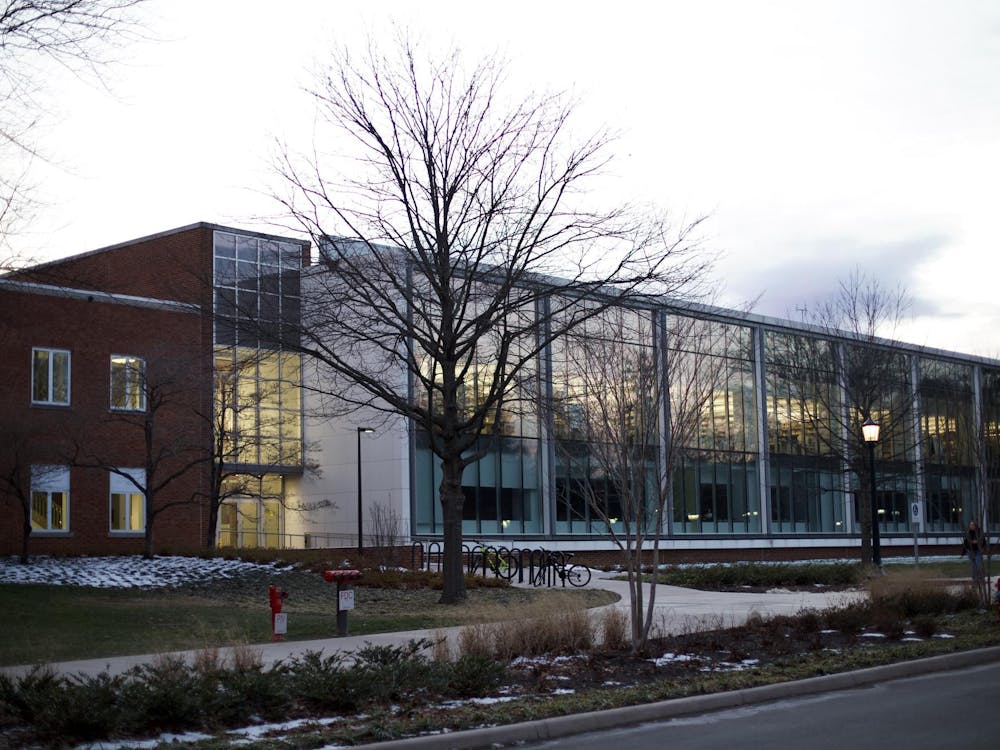It’s popular to complain about the food on Grounds. But placing general gripes about dining hall quality aside, there’s still a lot left to be disgusted with when it comes to Aramark, the University’s food provider. In particular, Aramark holds numerous contracts with multiple states’ for-profit prison systems, making a dime off many prisoners’ misery. With that considered, students should strongly evaluate the corporation which benefits from their meal plan dollars.
Aramark has committed many offenses against their employees and customers. But especially in regard to their contracts with for-profit prisons, Aramark’s warrants more than an asterisk for faulty business practices. In 2014, Aramark served actual garbage to prisoners. According to reports by Progress Michigan, a nonprofit committed to liberal advocacy, Aramark employees fished leftover food out of the trash and served it to Michigan inmates after realizing they underprepared fresh food. The leftover food was “rinsed,” “reheated in an oven” and later served. Only one employee was fired. At that same prison, it was reported that “rodent eaten” food was also served to inmates. In a Freedom of Information Act initiated by the Free Press, released records also documented “meal shortages, unauthorized menu substitutions, prisoner unrest, and overfamiliarity with Aramark worker and employees, including sex acts.” The state fined Aramark $98,000, but nearly half of it was later waived by the Michigan Department of Corrections. An additional $200,000 fine for other violations was initiated in the same year.
Aramark’s food conditions in Northpoint Training Center in Mercer County in Kentucky were so intolerable that a full-scale prison riot erupted, resulting in the injury of eight guards and eight inmates as well as the destruction of six buildings. Upon review of the riot, Aramark’s poor food quality proved to be a key element of the violence, signaled by the prisoners’ prior symbolic dumping of their food on the floor. Not only did Aramark contribute to this destruction of property, but they also failed to adequately investigate the event with, “a gross lack of submitting reports.”
In New York, Aramark gained infamy for its disciplinary brick, the Nutraloaf. This entrée is considered so revolting that numerous prisoners have filed lawsuits claiming that the Nutraloaf is a violation of their Eighth Amendment rights — namely, that the Nutraloaf is a form of cruel and unusual punishment. According to a Chicago food critic, the Nutraloaf can only be described as, “so intrinsically disagreeable that my throat nearly closed up reflexively…. [the] Nutraloaf is a culinary triumph; any recipe that renders all 13 of its ingredients completely mute is some kind of miracle.” Because of its horrendous nature, Governor Andrew Cuomo (D-N.Y.) has made promises, in the words of his special counsel to “eliminate the loaf.”
Students have an opportunity to demonstrate against Aramark. As students, we have the leverage to open a conversation about the origins of our food and the political ramifications of eating it, certainly more so than prisoners. Aramark clearly operates as under a strict corporate philosophy — always keeping in mind the bottom line, always looking for profit at the expense of people. However, as a student body faced with Aramark monopoly for on-Grounds food options, we should continue to challenge Aramark to accommodate student needs, both nutritional and ethical.
Unfortunately, the paths of resistance are limited — the University renewed a 20-year contract with Aramark in 2014, with the next negotiation period in 2034. However, there are other ways to protest against Aramark’s business practices. For one, students should avoid buying into Aramark’s meal plans. Aramark clearly responds to the power of the purse, rather than ethical obligations. While Aramark will stay contracted with the University for the next decade and a half, the loss of student interest in their meal plans would still hold sway. If we signal to Aramark that we don’t want to do business with them, they might pursue more ethical practices. Other options include petitioning University administrations and lobbying Bryanna Miller, the student member of the Board of Visitors, to reevaluate the University’s relationship with Aramark. Change is more likely to occur working within the bureaucratic structures of the University, rather than outside it. Finding political allies within the institution is crucial to breaking a contract worth up to $20 million.
Regardless of how change is pursued, it’s critical students take the lead in holding the University accountable. The University funds a corporation deeply interwoven into the framework of mass incarceration — with a clear historical pattern of mistreatment. It is the responsibility of students to show the University administration that doing business with Aramark is unacceptable.
Katherine Smith is an Opinion columnist for The Cavalier Daily. She can be reached at opinion@cavalierdaily.com.






